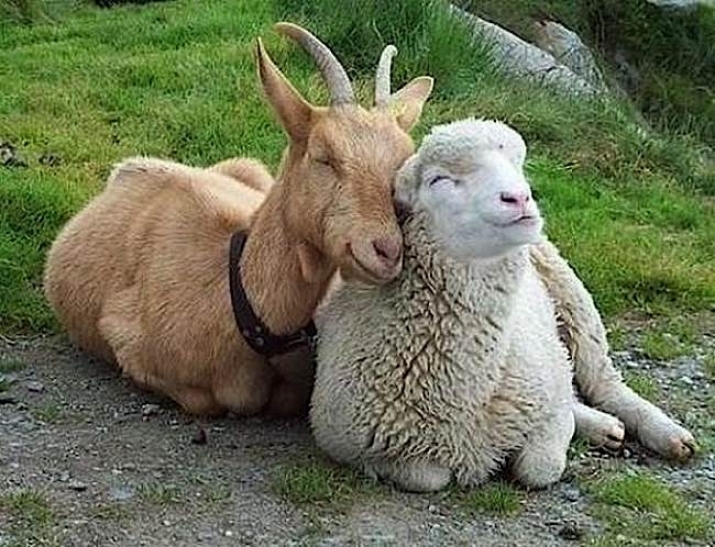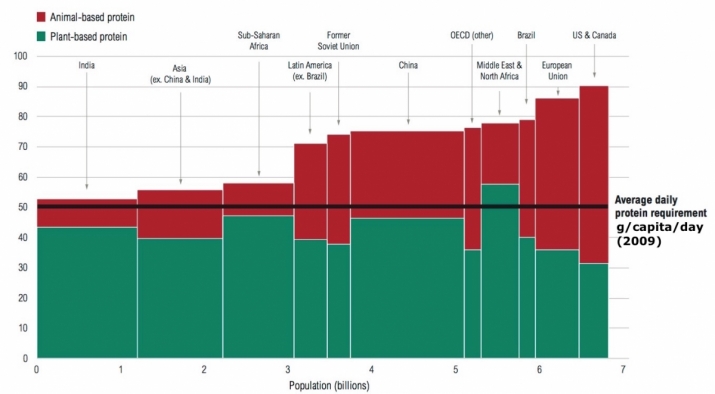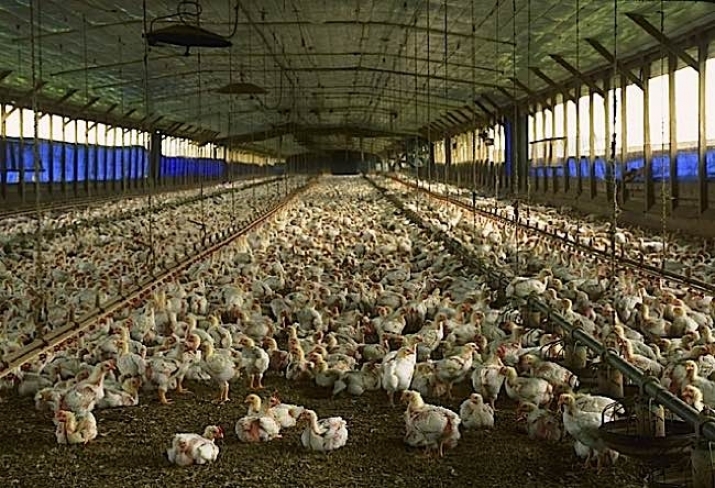NEWS
World Resources Institute Report Underscores Heavy Environmental Impact of Meat Industry
 From buddhaweekly.com
From buddhaweekly.comWhile not everyone is ready or able to adopt a strictly meat-free diet and not all Buddhist traditions recommend one, recent research published by independent non-profit organization the World Resources Institute (WRI) has highlighted the devastating impact the industrial-scale farming of animals for food is having on the global environment, indicating that the widespread adoption of a more plant-based diet may in fact be the only viable route to a more sustainable future.
With the global population projected to reach a staggering 10 billion people by 2050, and as more people in more countries gain access to better quality diets, the outcome is an estimated 70 per cent increase in demand for food over the next 34 years, the WRI says, citing data from the Food and Agriculture Organization of the United Nations (FAO). The study notes that increasing urbanization in emerging economies and greater prosperity for their populations points to strong growth in demand for resource-intensive foods, such as meat and dairy products, and that meeting this demand is likely to push greenhouse gas emissions above the threshold of safety, unless proactive steps are taken to reduce the component of meat production.
“At the same time, technological advances, business and economic changes, and government policies are transforming entire food chains, from farm to fork,” the report asserts. “Multinational businesses are increasingly influencing what is grown and what people eat. Together, these trends are driving a convergence toward Western-style diets, which are high in calories, protein, and animal-based foods.” (World Resources Institute)
 Protein consumption exceeds average estimated daily requirements in all the world's regions, and is highest in developed economies. From wri.org
Protein consumption exceeds average estimated daily requirements in all the world's regions, and is highest in developed economies. From wri.orgSimilar research led by scientists at Britain’s Oxford Martin School, a research and policy unit in the Social Sciences Division of the University of Oxford, appears to corroborate this position. Their study posits that in three decades, emissions related to agriculture and food production are likely to account for about half of the world’s available “carbon budget”—the level of emissions that can be poured into the atmosphere while limiting global warming to no more than 2°C. The study concludes that a global shift to markedly reduce meat consumption could lower global food-related emissions by almost a third by 2050, while the widespread adoption of a vegetarian diet could cut emissions by as much as 63 per cent.
Rearing livestock on an industrial scale—which encompasses the production of meat, milk, and eggs—is one of the world’s main sources of greenhouse gases, accounting for more than all the world’s aircraft and automobiles combined. Raising animals for food also requires massive quantities of water, grains, and land. In fact, some 30 per cent of the world’s total ice-free land is dedicated to supporting chickens, pigs, and cattle that are eventually consumed as food, rather than for cultivating grains, fruit and vegetables that could feed humans directly.
A 2006 report by the FAO titled Livestock’s Long Shadow, states: “The livestock sector is a major stressor on many ecosystems and on the planet as a whole. Globally it is one of the largest sources of greenhouse gases and one of the leading causal factors in the loss of biodiversity, while in developed and emerging countries it is perhaps the leading source of water pollution.” (Food and Agriculture Organization of the United Nations)
 Factory farming requires extensive use of land, water, and natural resources, and is a major source of global greenhouse gas emissions. From buddhaweekly.com
Factory farming requires extensive use of land, water, and natural resources, and is a major source of global greenhouse gas emissions. From buddhaweekly.comIf nothing else, these studies underscore the growing preponderance of scientific evidence that while attitudes towards meat production need to change, so too do attitudes towards consumption. Ethical considerations about the humane treatment of sentient beings aside, it is becoming increasingly clear that levels of meat consumption dictated by the typical modern Western diet cannot be sustained in the context of the planet’s rapidly burgeoning population and the growing adoption of similar diets in societies across the world.
Established in 1982, the WRI is a non-governmental research organization dedicated to sustainable natural resource management as a route to greater global equality and prosperity. As an independent non-profit organization with a presence in more than 50 countries and a staff of more than 450 scientists, economists, policy experts, business analysts, and statistical analysts working towards protecting the Earth and improving people’s lives, the WRI’s activities are focused on six key areas: climate, clean energy, food, forests, water, and sustainable cities.
See more
SHIFTING DIETS FOR A SUSTAINABLE FOOD FUTURE (World Resources Institute)
World Resources Institute
Vegetarianism Should be a Global Priority: New Research from World Resources Institute Demonstrates Devastating Environmental Impact of Meat Industry (Buddha Weekly)
Eat less meat to avoid dangerous global warming, scientists say (The Guardian)
Livestock's Long Shadow: Environmental Issues and Options (Food and Agriculture Organization of the United Nations)














